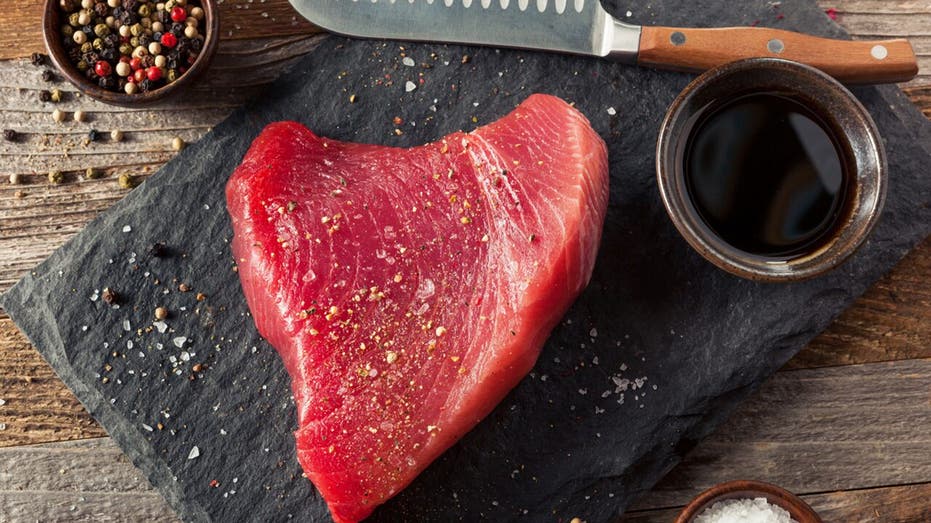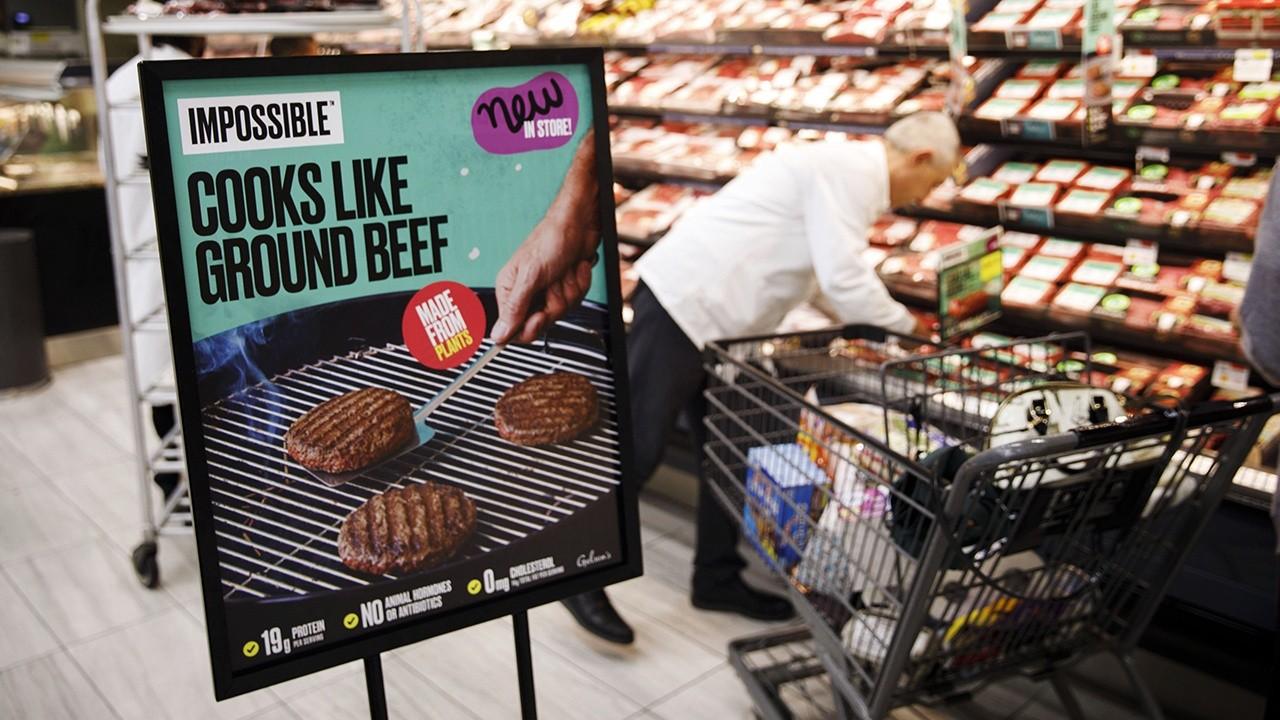Beyond Meat of sushi hooks onto $13.7 billion plant-based market
Plant-based company Kuleana aims to be seafood alternative
It’s sushi with a catch — no fish.
A type of fish-free "tuna" that looks, tastes and mimics the texture of the real fish — minus the smell — is hoping to get its hooks into the plant-based market, joining the likes of other faux-meat products from Beyond Meat and Impossible Foods in the $13.7 billion plant-based industry.

West Coast startup Kuleana is making raw "tuna" made with iron, algae oil and other proteins. (iStock).
San Francisco-based startup Kuleana makes its raw "tuna" with iron, algae oil and various proteins, using a proprietary process said to recreate the taste and texture of raw fish, according to Tech Crunch.
The goal, Kuleana co-founder and chief executive Jacek Prus said, is to toss the alt-tuna into fish-forward meals like poke bowls and sushi rolls as a vegan replacement for animal products. The company also plans to create plant-based seafood alternatives “without the environmental and ethical consequences,” its website says.
CORONAVIRUS HAS AMERICANS HOOKED ON CANNED TUNA, AND PRODUCERS ARE PLAYING CATCH UP
The fishless seafood concept swims alongside a number of products that have recently come to market to capure demand for lab-grown seafood alternatives. Good Catch created a veggie-based version of albacore tuna using legumes, beans and algae packaged in pouches instead of cans. And others, like Ocean Hugger, claim to have "the world's first plant-based alternative to raw tuna."
OYSTER FARMERS REELING IN CORONAVIRUS DEMAND
| Ticker | Security | Last | Change | Change % |
|---|---|---|---|---|
| BYND | BEYOND MEAT INC. | 0.73 | +0.06 | +9.43% |
Now could be the perfect time for fishless tuna to dive into the marketplace. Canned tuna sales have surged as a result of the coronavirus pandemic, with consumers stocking up. And as a result, producers are grappling with higher prices and have challenges to keep up with demand.
In addition, there seems to be more demand as meat prices, like that of beef, have risen amid the pandemic as a result of plant closures. Retail sales for plant-based foods in the U.S. have increased by 11 percent compared to last year, according to the latest data from the Plant-Based Foods Association and the nonprofit Good Food Institute.
CLICK HERE TO READ MORE ON FOX BUSINESS
What's more, the seafood industry as a whole is facing challenges with restaurant dining rooms still closed or at capacity in many parts of the country, prompting chefs and owners to buy less seafood. The oyster industry, in particular, is struggling with too much supply and not enough demand.




















